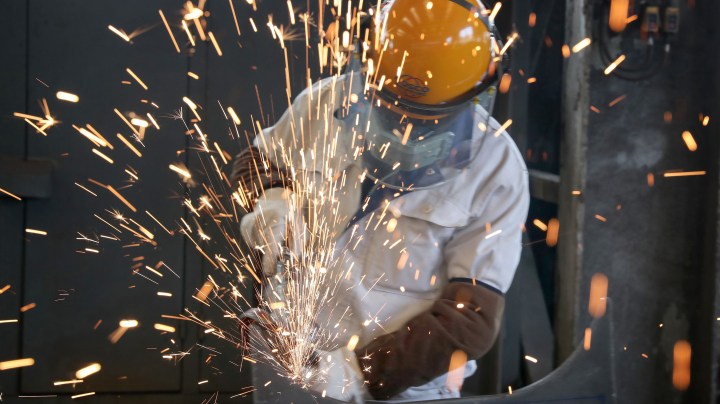
U.S. manufacturers are adjusting supply chains due to coronavirus
U.S. manufacturers are adjusting supply chains due to coronavirus

The Chinese government is urging people in areas less affected by the coronavirus outbreak to go back to work this week, telling farmers not to miss the spring planting season and asking large companies aim towards production targets.
But many businesses in China remain closed as employees self-quarantine at home and grapple with interrupted domestic supply chains and shipping networks, deepening the toll on the global economy. With so many factories idled, some companies outside of China have been scrambling to find alternate sources for materials.
One such company is Riverdale Mills, a Massachusetts-based manufacturer of welded wire mesh used to make everything from lobster traps to garden fencing. CEO Jim Knott told Marketplace’s Sabri Ben-Achour that the virus has forced them to look to Latin America and Europe for chemicals and pigments that are necessary to their production, which ends up being more expensive.
At the same time, the company is struggling with other trade disruptions.
“The rising value of the U.S. dollar presents challenges to manufacturers such as Riverdale Mills,” said Knott, whose company exports about 45% of their product. “It makes our product less desirable on the export market.”
Add tariffs into the mix, and the cost of importing products goes up, too.
“We’re really relying on the domestic economy to supply us with all the raw materials we need. In many cases, that can’t be done,” said Knott.
Click the audio player above to hear the full conversation.
There’s a lot happening in the world. Through it all, Marketplace is here for you.
You rely on Marketplace to break down the world’s events and tell you how it affects you in a fact-based, approachable way. We rely on your financial support to keep making that possible.
Your donation today powers the independent journalism that you rely on. For just $5/month, you can help sustain Marketplace so we can keep reporting on the things that matter to you.


















